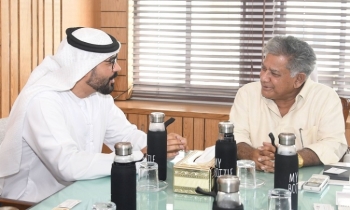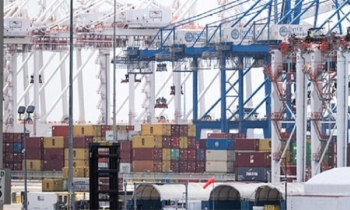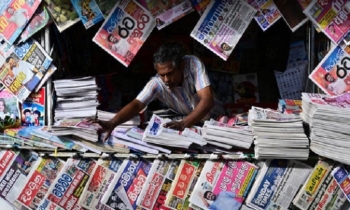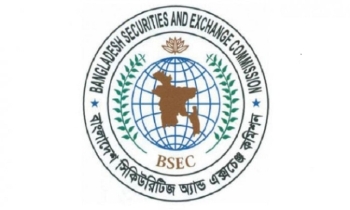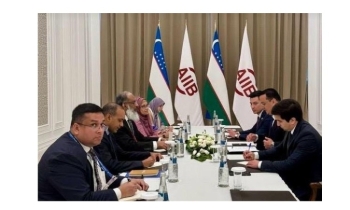Long-term business, industrial policy needed for stability: FBCCI
BI Desk || BusinessInsider
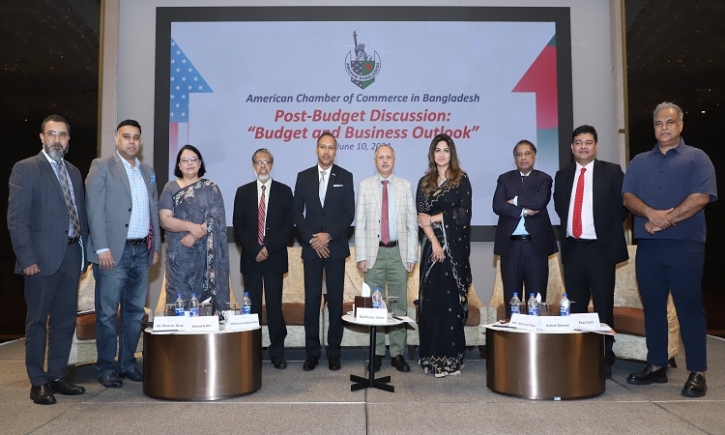
Photo: Collected
Federation of Bangladesh Chambers of Commerce and Industry (FBCCI) president Mahbubul Alam on Monday said that long-term business and industrial policy are needed for stability and growth.
Mahbubul said this while speaking at a discussion hosted by the American Chamber of Commerce in Bangladesh (AmCham Bangladesh) titled "Budget and Business Outlook" as the chief guest held at a city hotel.
The discussion brought together key figures to analyze the implications of the recent national budget for the Bangladeshi business community.
A panel of experts including, Muhammad Abdul Mazid, former chairman of the National Board of Revenue (NBR), Nihad Kabir, former president of the Metropolitan Chamber of Commerce Industry (MCCI), Md. Moinul Haq, an AmCham EC member, Ashraf Ahmed, president of the Dhaka Chamber of Commerce and Industry (DCCI) and Reaz Islam, chief executive officer (CEO) of LR Global Bangladesh Asset Management Company spoke at the event.
The panel discussion was moderated by Dr. M. Masrur Reaz, chairman of Policy Exchange Bangladesh.
Terming inflation as a major concern, the FBCCI president said, "We must have a long-term policy for doing business and run industry. We frequently change our policy. There should not be overnight change with an SRO by revenue board,"
The panel discussions focused on the budget's potential impact on various sectors, providing insights and recommendations for businesses navigating the new fiscal landscape. Key areas of focus included sector-specific allocations, potential tax changes, and the overall economic climate envisioned by the budget.
Dr. M Masrur Reaz presented a brief overview of the budget, noting its contraction nature aimed at reducing government spending, which is seen as necessary in the current economic climate.
He highlighted both positive and negative aspects of the budget in terms of containing inflation and foreign exchange demands.
However, the panelists also raised criticisms, pointing at inadequate spending on critical social infrastructure sectors, a reduction in allocations for physical infrastructure, including transport and energy, and overly optimistic projections for key economic indicators like inflation, GDP growth, investment, and tax revenue levels for FY25.
The budget's high borrowing target of Tk 160,950 crore (64% of total budgetary resources) is expected to put pressure on domestic liquidity and crowd out the private sector from the banking system.
The event concluded with a lively question and answer session, allowing participants to delve deeper into specific concerns and seek clarification on budgetary details, providing valuable context for businesses seeking to adapt and thrive under the new fiscal policies.
Masrur in his short speech also emphasized the need for joint efforts of the government, policymakers, and the central bank to control inflation and implement effective measures.
The speakers also highlighted that the budget formulation and implementation should be handled by separate entities.
The discussion also addressed challenges such as a declining foreign exchange reserve, the balance of payment deficit, energy sector demand-supply imbalances, and a struggling banking sector.
AmCham recommended prioritizing foreign exchange reserves, tax and VAT policy, social safety nets, and renewable energy. The event was attended by numerous business leaders, foreign dignitaries, media representatives, and other guests.
Rubaba Dowla, AmCham Bangladesh Committee Member and Country Managing Director for Bangladesh, Nepal, and Bhutan at Oracle Limited, offered the vote of thanks.


